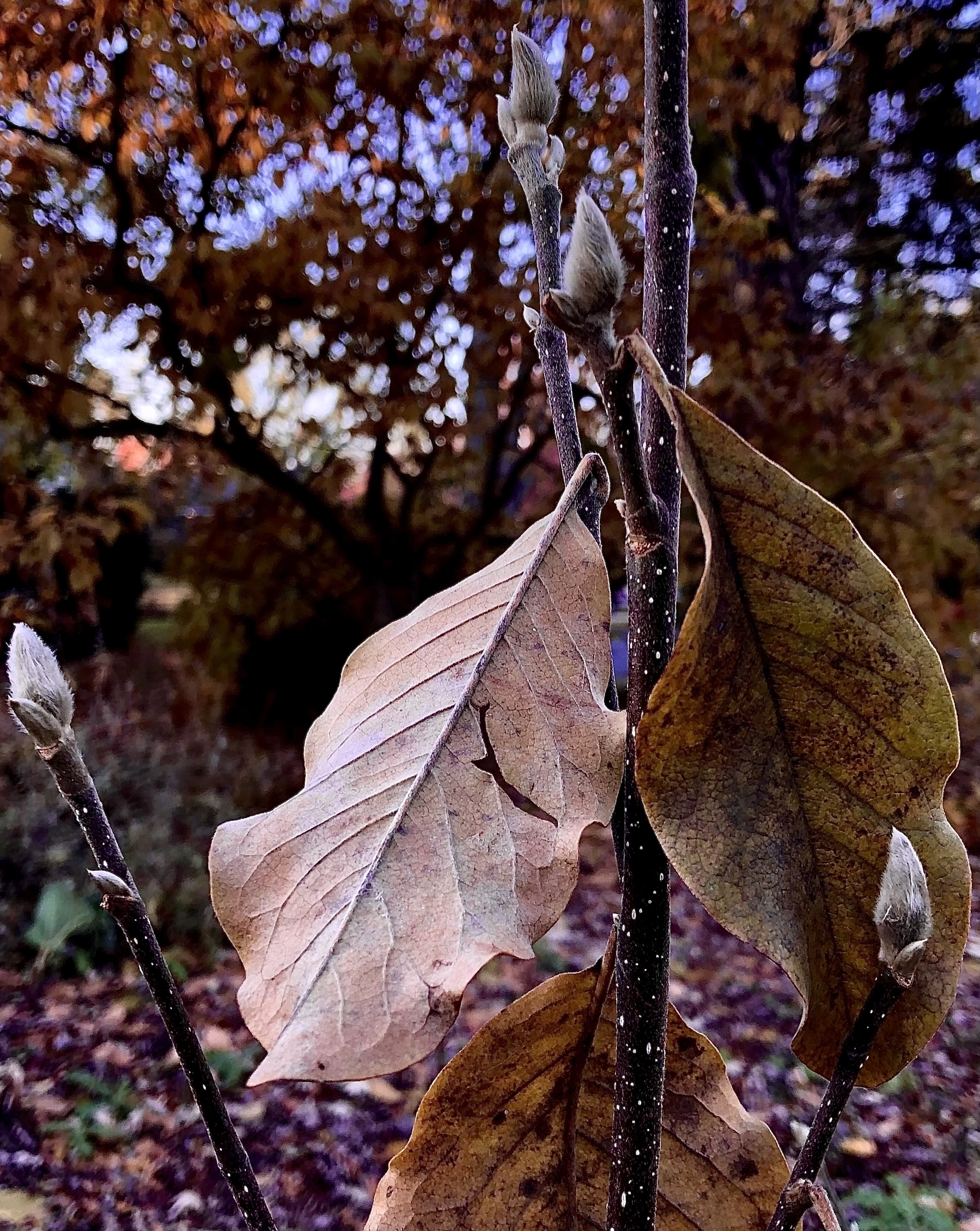16 November 2021
Fidál, 14 Qudrat (Power), 178 B.E.
Seen
Magnolia buds beginning their long wait for spring

Done
- Made of pot of cabbage soup
- Cleared the way for holiday decorations to be put up
- Setup todo templates on Evernote for daily blog posting projects
- Began to collect and organize materials received about a potential book project related to client work I did in the 1990s—it’s somewhat akin to knowing that one is nearing the event horizon of a black hole from which there is no turning back—but it is a worthy cause! More later …
Noted
Anniversary of the passing of Meta Ihara in 2018. She was one of the most remarkable persons I have known—I was so lucky to have her for a mother-in-law!
Astral Prospecting on Instagram
Marc Bosserman on Instagram and Marc Bosserman Music and Musings on YouTube
Quoted
The Festival of Ridván (April 21-May 2) termed by Bahá’u’lláh the “_Most Great Festival_” and the “_King of Festivals_” provides the occasion for the holiest days of the Bahá’í year. The first, the ninth, and the twelfth days of Ridván are Bahá’í Holy Days on which work should be suspended. Coming within a few days of each other, these Holy Days mark the high point of the Bahá’í year.
The Ridván Festival commemorates the anniversary of Bahá’u’lláh’s sojourn in the garden of Najíb Pasha, outside Baghdad, during the twelve days before His banishment to Istanbul in 1863. The weeks before Bahá’u’lláh’s retirement to this garden had been tragically sorrowful ones for His friends and family. Informed of the government’s order which would remove Bahá’u’lláh from Baghdad and tear Him away from most of them forever, they mourned and lamented, crowding in and around His house in large numbers. Knowledge of the inevitable departure brought them nothing but sadness and despair.
However, it was on this occasion that Bahá’u’lláh chose to make a private declaration of His station to a few of the believers, who immediately accepted His claim. With this action, Bahá’u’lláh transformed the occasion of His banishment to Istanbul from tragedy into triumph. Today, the eve of Bahá’u’lláh’s banishment from Baghdad is commemorated each year by Bahá’í communities around the world, not as a time of sorrow or regret, but as a festival of great joy. The holiday stands as a demonstration of the power of the Manifestation of God to create good from evil, bring forth light from darkness, and win victory from seeming defeat. 1
This book draws together a selection of passages from the Bahá’í Sacred Writings which can be used at Holy Day celebrations and other occasions during the Ridván period. 2
My sister and brother-in-law recently relocated and chose to donate several books in their library rather than move them. Many of these volumes are not well-known, but due to the topics they cover and the manner in which their authors explore them, they warrant a nod of recognition before being sent on their way. Accordingly, most quotes referenced in the “Quoted” section come from these books. Maybe they will stir (or renew) your interest, too.